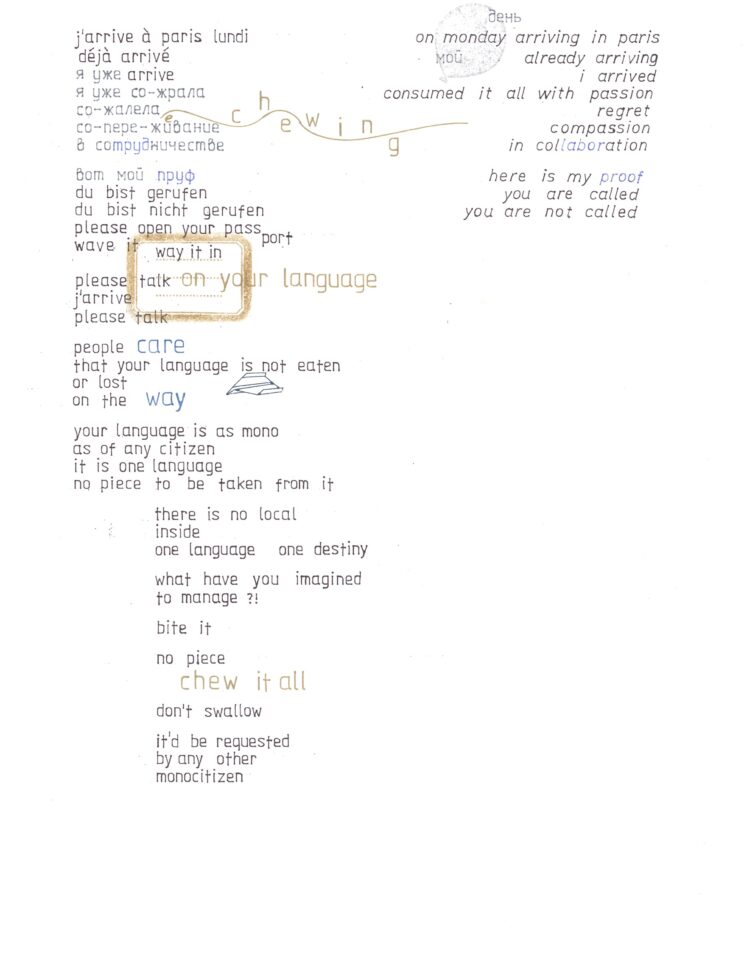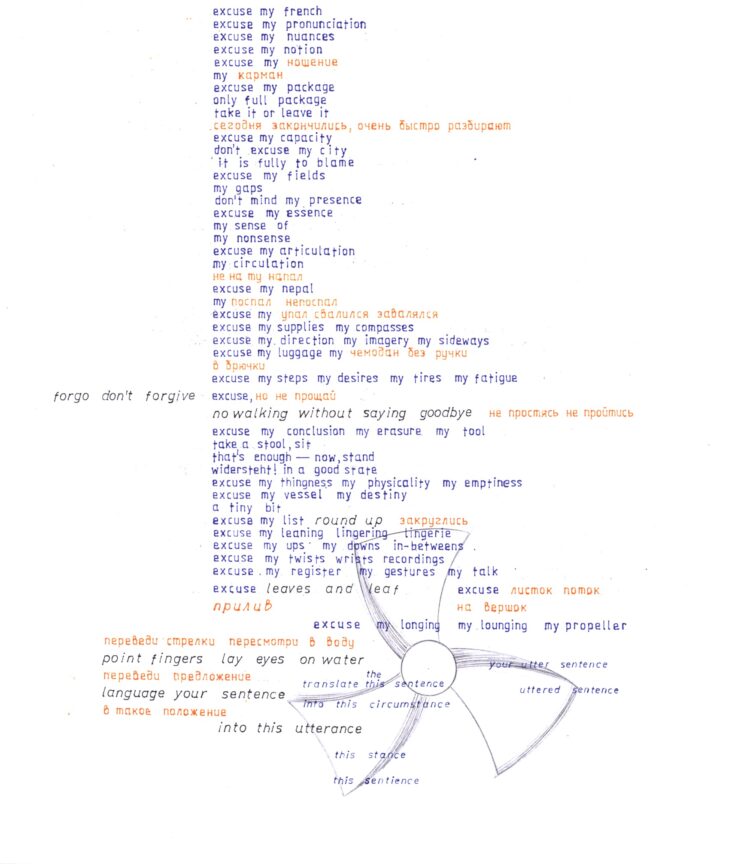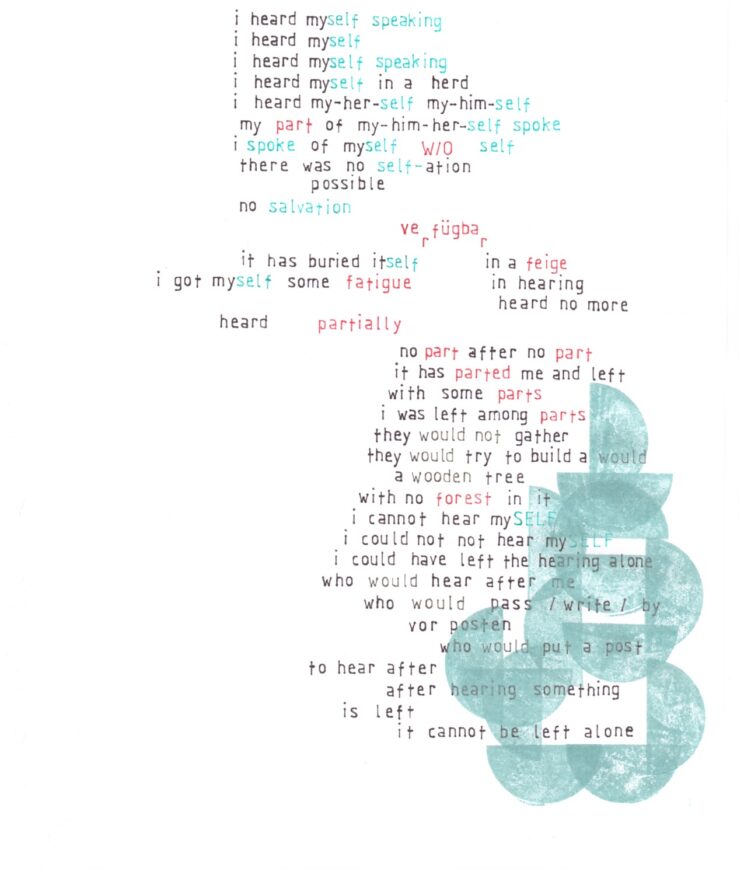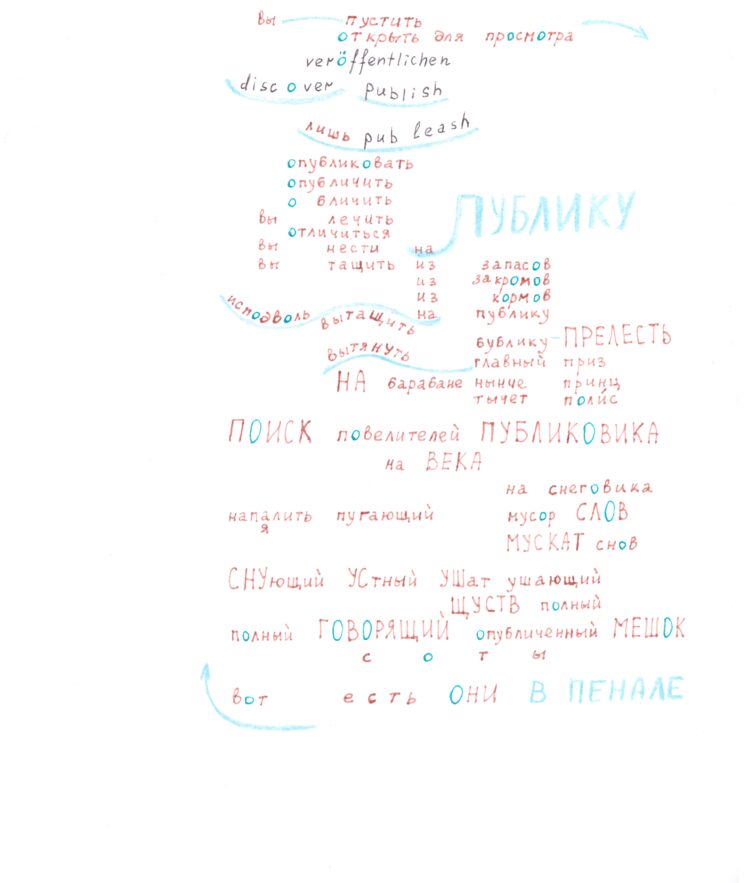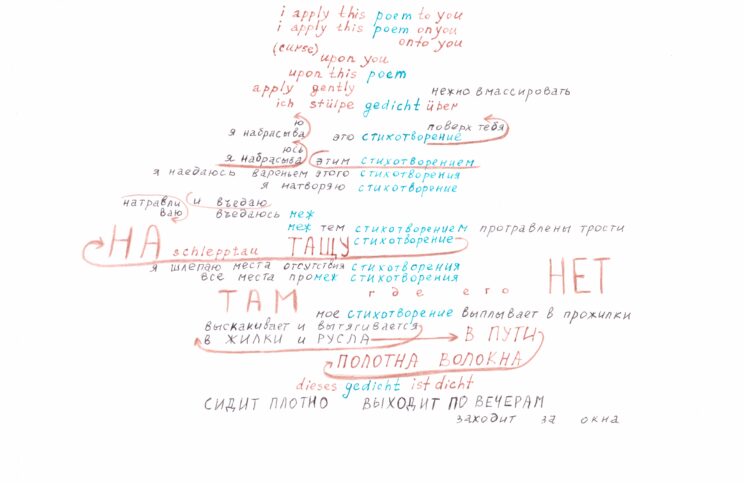Irrturm
An original work by Inna Krasnoper
Audio of Poems
Inna Krasnoper is a poet, artist, and literary translator who was born in Ufa (Bashqortostan) and has lived in Berlin since 2011. She received a BA in “Dance, Context, Choreography” from UdK Berlin and studied at the School of Engaged Art by “Chto Delat” Collective. Inna locates her practice at the interstices of movement and writing, developing visual and verbal aspects of the poetry, working with performance and installation. Her first book of Russophone poetry came out in 2021 at Voznesensky Center. Publications in English (and multilingually) include: SAND Journal, Ghost Proposal (also featured on Poetry Daily), Pocket Samovar, Oversound, Slanted House Zine, Dvoetochie, and stadtsprachen magazin. Inna translates in between Russian, English, Ukrainian, and German. Her first chapbook of multilingual poetry is forthcoming from Eulalia Books. More information about her work can be found here: https://msha.ke/innakrasnoper
Translator’s Note:
These visual poetry pieces deal with translational poetics, either inside the body of text or as a step to the side. In the first two I tried to keep my rewriting/translation in italics. In “j’arrive à paris lundi…” it appears in a separate column, but the phonetically similar words “сопереживание” [compassion] and “жевание” [chewing] melted together and escaped quarantine. I found it interesting to explore the extent to which this separate zone (column) of translation could indeed remain separate and, on the other hand, the extent to which it engaged in crosstalk.
In “excuse my french…,” I placed some of my rewriting in the main body of text, swapping this fragment, so to say, with the original. The “original” and further elaboration on it are then placed side by side (sometimes on both sides of each other). One point of interest in these auto-translations is the extent to which the translated phrase keeps reverberating in more than one language, relating through sound to the lines coming before and after. Several attempts are made to translate the last lines in Russian, resulting in a kind of side-track, a loose end. James McGavran discussed this piece with me and also took part in its creation.
In “i heard myself speaking…,” for reasons of overall visual clarity, I didn’t add translations for a couple of words in German. “Verfügbar” means “available;” “feige” means both “fig” and “cowardly.” The placement of “verfügbar” across the two lines was an attempt to fix a spelling mistake at first, but later became a visual concept, a form.
The fourth and fifth poems are written in Russian, English, and German. Each line attempts to relate/translate/move around and further. They also include more visual marks.
I like to think about translation not as the perfect mental process of finding another entity in another language, but as a physical act bound by its own limitations, surfaces, and local placement. It is great to have (and to work towards) flexibility in reaching between the profundities of more than one language. It is also fruitful to be stuck, tongueless, fragmented, and irregular. To build a tower with mistakes–Irrturm.

